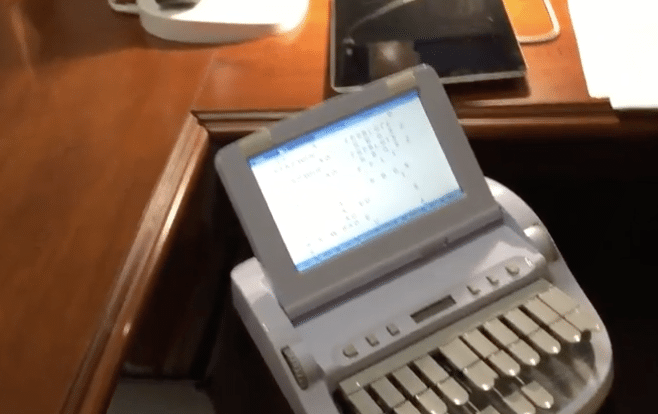Why Are Stenographers Still Needed?

The Importance of Stenographers in Court Reporting In today’s fast-paced digital age, where automated transcription tools and voice recognition software are becoming increasingly prevalent, one might wonder why stenographers are still an essential part of court reporting. While technological advancements have undoubtedly revolutionized many industries, including the legal field, stenography remains an invaluable skill in […]
The Art of Stenography

The CourtScribes company are masters in stenography? The “art” of stenography is about recording what is being said as quickly and as accurately as possible. Stenography is mostly used in a courtroom or legal setting, ensuring that everything is being transcribed for the record. This is important because important decisions are being made on what […]
Stenogrpahy & Stenographers Matter

Stenography is one of the most identifiable methods of recording the spoken word. Stenographers have been a familiar sight in courtrooms for the better part of the past centuries. Stenography, in short, is the act of recording spoken words through shorthand using a stenotype machine. Shorthand as a whole is not a new concept. Shorthand […]
Why Stenography is Necessary in Law

You probably already are well familiar from this site that court stenographers are people trained to type and write in shorthand, which allows them to write as fast as people can speak. It is believed that 180 Words Per Minute is the ‘speed of speech’. Stenographers document and record everything that takes place in the […]
CourtScribes Explains What a Stenographer Is and Does

CourtScribes is the number one company in America when you are looking for a stenographer. A stenographer is one who is trained to type or write in shorthand methods, enabling them to write as quickly as people speak. Stenographers create long-lasting documentation of everything from court cases to medical conversations. This is useful in many […]
Why Stenographers at CourtScribes Are Important

We are guilty of being biased here at CourtScribes. We know that the career of being a stenographer is a ‘hidden gem of a career’. There are many services stenographers offer. These include court reporting, medical transcribing, and real-time TV captioning. A court reporter serves an important role in the judicial system by protecting and […]
What Exactly is the Art of Stenography

The CourtScribes company are masters in stenography? The “art” of stenography is about recording what is being said as quickly and as accurately as possible. Stenography is mostly used in a courtroom or legal setting, ensuring that everything is being transcribed for the record. This is important because important decisions are being made on what […]
Project Steno Helps Students Choose a Career in Court Reporting

Project Steno, founded in 2017, is an independent, non-affiliated organization that relies on financial support from the court reporting community to promote the stenographic reporting profession and recruit promising students. Project Steno has a free, online, 12-hour course offering potential students an introduction to court reporting and captioning. All of this without having to make […]
Nine Questions Answered About Stenography

We have all seen the person in the courtroom typing away with reckless abandon, as people speak and give their testimony in any given courtroom proceeding. You may have wondered to yourself, how do they do that, where did they learn that, and even how much do they make for doing that? Well, that person […]
What is Stenography

The “art” of stenography is about recording what is being said as quickly and as accurately as possible. Stenography is mostly used in a courtroom or legal setting, ensuring that everything is being transcribed for the record. This is important because important decisions are being made on what is said during trials, depositions, and arbitrations. […]
